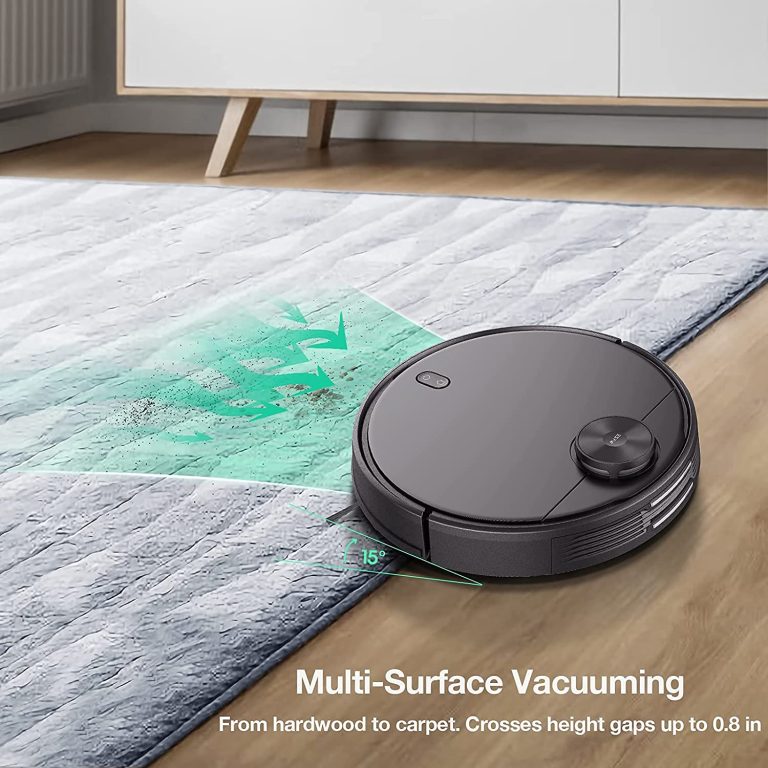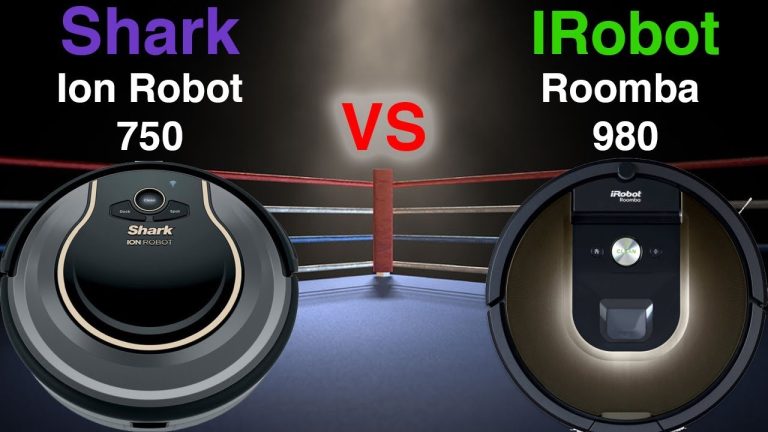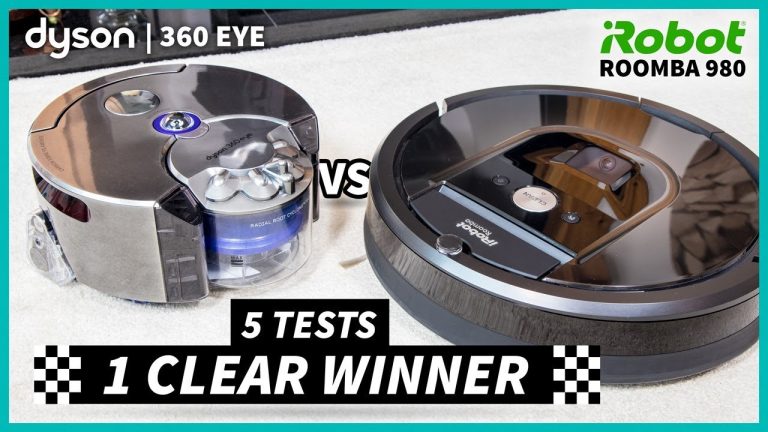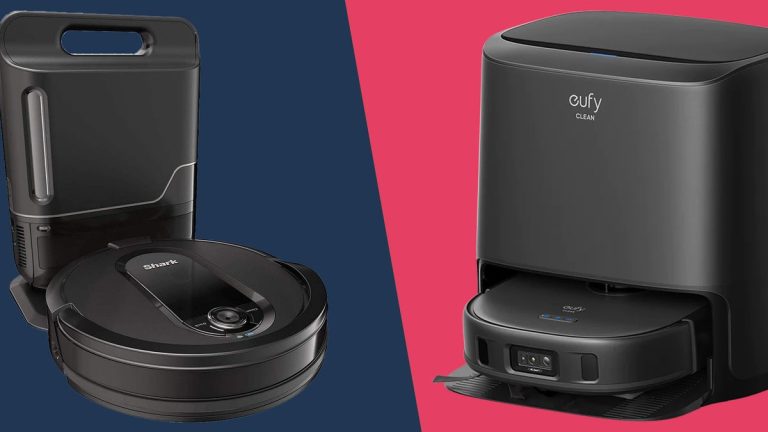Roomba Vs Shark Robot Vacuum
The Roomba and Shark robot vacuums offer unique cleaning experiences; Roombas excel in navigation while Sharks often provide more raw suction power. Choosing between these brands depends on your cleaning preferences and home layout.
Selecting the right robot vacuum can be a challenge, with numerous options flooding the market. Roomba, known for its pioneering technology in the robot vacuum space, often comes to mind first. On the other side, Shark robot vacuums are quickly becoming favorites for their powerful suction and user-friendly features.
Both brands bring smart home cleaning to a new level with their respective models designed to meet various household needs. From pet hair to daily dust, they promise to tackle it all with minimal human intervention. This introduction aims to guide you in making an informed decision based on the strengths and functions each brand offers, ensuring your floors get the best automated clean possible.
Introduction To Robot Vacuums
The automated cleaning industry has grown quickly. Homes worldwide now often have a robot vacuum. These smart devices clean floors without help. Robot vacuums save time and effort. They can sweep and sometimes even mop.
A Roomba or a Shark Robot Vacuum can change cleaning routines. They both use sensors to avoid obstacles. Their clever programming lets them cover all areas. Yet, each brand has its own special features. Let’s compare them in detail.
| Features | Roomba | Shark Robot Vacuum |
|---|---|---|
| Navigation | Advanced smart mapping | Sensitive sensors |
| Battery Life | Long-lasting | Varies by model |
| Suction Power | Strong | Comparable |
| Mopping Ability | Available in some models | Not widely available |

Credit: www.getonedesk.com
Brand Heritage And Product Evolution
Roomba, the pioneering robot vacuum, boasts a rich history of innovation. Shark Robot Vacuum, by comparison, emerges as a bold new competitor. Roomba’s evolution features numerous technological advancements. These include improved navigation and enhanced cleaning patterns.
Shark enters the arena with cutting-edge features. They aim to refine the user experience. Both brands have their unique paths in robotic vacuum development. A side-by-side timeline reveals how each brand has progressed over time. It highlights key milestones in technology and design.
| Year | Roomba Evolution | Shark Advancements |
| 2002 | First Roomba introduced | N/A |
| 2013 | Roomba 800 series with AeroForce technology | N/A |
| 2018 | Roomba i7 with Clean Base Automatic Dirt Disposal | Shark Ion Robot introduced |
| 2021 | Roomba j7 with obstacle identification | Shark AI Robot with advanced navigation |
Performance Comparison
Roomba and Shark robot vacuums are fierce contenders in the cleaning arena. Roomba vacuums are known for their powerful suction and efficient debris pickup, which leaves your floors spotless. Shark models, while they boast strong suction, often focus on hair and large particle removal.
The battle of battery life sees Roomba with a slight edge, offering long hours of cleaning without a charge. Shark vacuums also promise enduring battery life but may require more frequent dock visits. Both brands have made significant strides in fast charging capabilities.
Regarding navigation, Roomba utilizes a sophisticated system that learns the layout of your home for efficient cleaning paths. Shark robots rely on smart sensors to avoid obstacles and clean effectively. Each brand’s mapping technology ensures thorough coverage of every nook and cranny.
When we look at maintenance, both Roomba and Shark require regular upkeep. The main difference lies in the durability of components and ease of part replacement. User experiences suggest that Roomba and Shark are nearly tied in these aspects, prioritizing long-lasting quality and user-friendly design.
User Experience And Convenience Features
The ease of setup and operation is a crucial factor when choosing a robotic vacuum. Both Roomba and Shark Robot Vacuums offer user-friendly interfaces. Users often find that getting these vacuums up and running is straightforward and hassle-free. With simple instructions and intuitive controls, even first-time users can start cleaning without much trouble.
Smart Home Integration and App Functionality take convenience to the next level. Roomba and Shark vacuums connect seamlessly with smart home systems like Amazon Alexa or Google Assistant. Their dedicated apps enable remote control, scheduling, and monitoring of cleaning sessions.
Good Customer Support and Warranty Services ensure peace of mind. Both brands provide reliable support and comprehensive warranties, reflecting their commitment to customer satisfaction. This makes handling issues and resolving concerns less stressful for users.
Economic Aspects
Roomba and Shark robot vacuums offer competitive pricing for their features. The value proposition differs based on models and functionalities. A Roomba might have a higher initial cost, but its cutting-edge features can justify the expense. Shark vacuums often present a lower sticker price, appealing to budget-conscious consumers.
The cost of ownership extends beyond purchase price. It includes consumables like filters and brushes, and replacement parts. Roomba’s official consumables generally cost more, but are crafted for optimal performance and longevity. Shark offers more affordable replacements but may need more frequent purchases.
This impacts the resale value and how these robots are seen as a long-term investment. Roombas tend to maintain value due to brand recognition and durability. Sharks may depreciate quicker but start as a cost-effective option. Potential buyers consider these factors when choosing a robot vacuum for their home.
Consumer Feedback And Market Reputation
User reviews and ratings show a clear trend in preferences. Feedback highlights Roomba’s efficiency and advanced navigation systems. Shark robot vacuums often get praise for their affordability and ease of use. Users frequently mention Roomba’s higher price but consider it justifiable given its features. Shark’s models are noted for durability, making them popular across various households.
| Expert Opinion | Market Share | Brand Loyalty |
|---|---|---|
| Industry experts favor Roomba for its innovative technology. | Roomba leads with significant market share in premium segments. | Roomba users are highly loyal, emphasizing long-term satisfaction. |
| Shark is commended for its value proposition. | Shark is gaining ground in mid-range markets. | Shark’s customers value its cost-effectiveness and practical features. |
Recommendations
The battle between Roomba and Shark robot vacuums is fierce. Roombas excel in smart navigation and are ideal for homes with pets. Shark models often come at a lower price point, making them great for budget-conscious buyers. Both brands have models that effectively handle daily cleaning tasks.
| Features | Roomba | Shark |
|---|---|---|
| Navigation | Advanced | Standard |
| Pet Hair | Excellent | Good |
| Price | Higher | More Affordable |
Consumers with pets and larger budgets may prefer Roomba. Shark is more suited for those saving money but still wanting effective cleaning.
Trend-watchers anticipate smarter robots with even more precise navigation and enhanced connectivity in the future. Market growth is expected to continue, with innovations catering to diverse household needs.
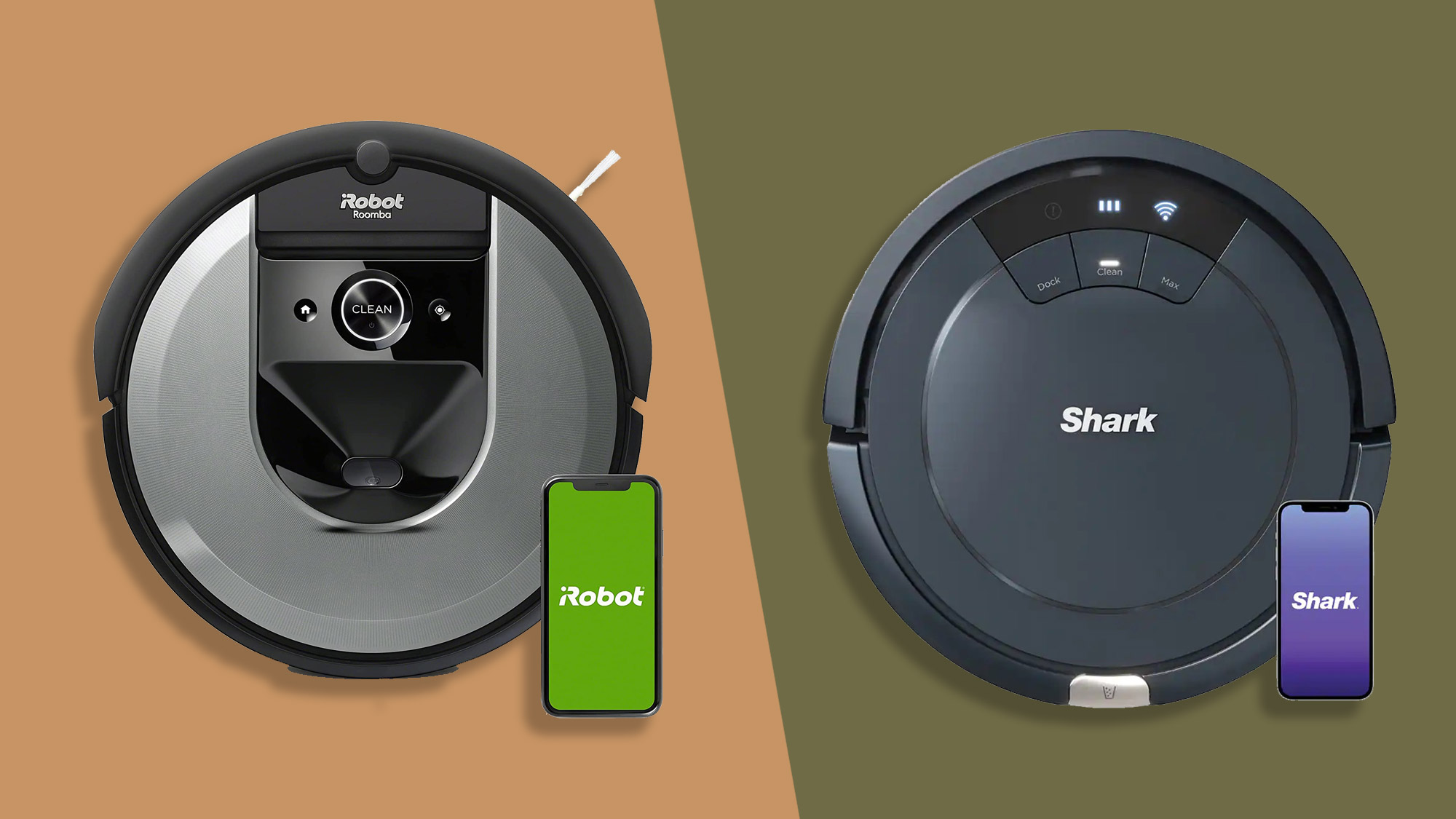
Credit: www.techradar.com

Credit: moderncastle.com
Frequently Asked Questions On Roomba Vs Shark Robot Vacuum
Is Shark Robot As Good As Roomba?
Shark robot vacuums offer competitive features and performance to Roomba models. While Roomba may lead in brand recognition and innovation, Shark often presents as a cost-effective alternative with robust cleaning capabilities.
What Is The Number 1 Robot Vacuum?
The number 1 robot vacuum often varies based on real-time reviews and innovations. Check latest consumer reports and tech reviews for the top-ranked model to ensure up-to-date information.
What Is A Disadvantage Of Using A Roomba?
A Roomba’s disadvantage includes limited suction power compared to traditional vacuums, potentially missing thorough clean-up for heavy-duty messes.
What Are The Cons Of Shark Robot Vacuum?
Shark robot vacuums may struggle with thick carpets, have limited dustbin capacities, and sometimes miss spots during cleaning. Some models can be noisy, and navigation issues may occur, particularly in cluttered spaces. Connectivity problems with the app are also reported by users.
Conclusion
Deciding between Roomba and Shark robot vacuums isn’t simple. Each offers distinct perks suited to varied cleaning needs. Your lifestyle and home layout dictate the best fit. Weigh the features, consider the investment, and choose a robotic helper that aligns with your household expectations.
